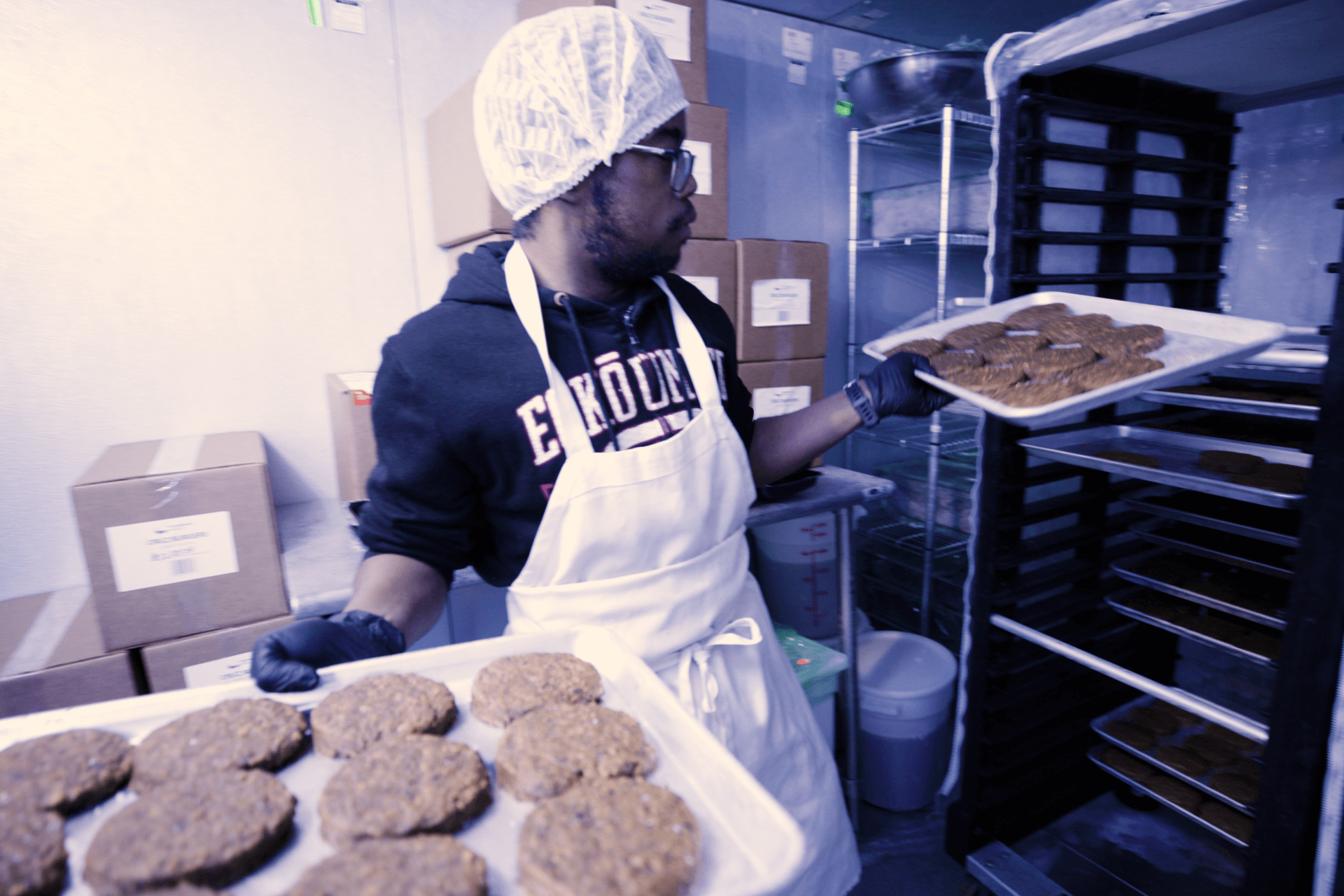
The Mushroom Angel Company
In pulling up and moving their young family from New York to Detroit in 2016, W.E. and Dom Da’Cruz took a leap of faith.
They arrived in a city where they had no family, no business connections, and didn’t know a soul. They set out with a belief in themselves, in the strength of their young family, and the extraordinary opportunity they saw in Detroit – a city fresh off bankruptcy that offered entrepreneurs the chance to realize their dreams away from the sky-high costs of the East Coast.
“I always attest to the infinite amount of opportunities here in the city whether you’re looking to be international or local,” said W.E. “And that’s what got us to Detroit. It was nothing else, but simply a curiosity about what was possible for a city that was looking to revitalize itself. We thought we could be part of that transformation.”
While Dom worked a business lending job with Dan Gilbert’s Rapid Finance, W.E. was building an upstart digital tech company – Virtual Global Consultant (VGC) Group – when one day in 2020, while making a veggie burger from scratch, she ran out of chickpeas.
Substituting mushrooms into the recipe led to a flavorful veggie burger that cut and bit like meat, a catalytic moment that changed the trajectory of their lives.
Not long after, during a spiritual fast designed to glean the health benefits of removing meat and sugar from their diets, the couple experienced an angelic revelation about the power of mushrooms that inspired the veggie burger – and The Mushroom Angel Company was born.
No Food Experience, A Global Pandemic, A Baby on the Way – No Problem
With their third child on the way, Dom would leave his job during the pandemic to perfect the recipe. That work would result in the Cruz Burger, a tasty veggie burger with meat-like texture thanks made with Cremini mushrooms as the main ingredient.
Having no experience in food production, and the pandemic shutting down the economy, W.E. and Dom made burgers out of their home and went door to door with free samples to gauge the market.

Receiving favorable reactions, they began to explore launching the product. Starting at Michigan State University’s Product Center, they learned how to make a product legally, develop nutritional facts, and set a competitive price.
“You don’t know what you don’t know,” said W.E. “And so it became unlocking one key, unlocking the door, which unlocked the next door and the next door in this really large, exciting ecosystem.”
Their next stop in that ecosystem brought technical assistance and a $6,840 grant through the Fair Food Network – an NEI grantee and nonprofit business support organization. This grant helped pay for 90% of the consulting fee for JPG Resource to help them learn the nuances of the competitive food industry and identify the trade shows and avenues needed to get their frozen product to market.

“It’s definitely a very close-knit food ecosystem here,” said Dom. “The Fair Food Network opened doors for us to professional resources that we would not have been able to seek out on our own.”
Already selling Cruz Burgers at Eastern Market on Sundays, where they had made their first sale, this new information helped them set larger goals.
Unique Access and Connections Lead to Store Shelves
As the couple perfected their product, they won the 2023 Michigan Good Food Fund Pitch at Making it in Michigan competition injecting $3,000 into the young business. They also attended food shows across the country, and eventually leased space in a local production kitchen.
In addition to selling directly to customers at the weekend markets, the Da’Cruzes mingled with restaurateurs and grocery store purchasers. It’s there they met the owner of Rivertown Market, which landed their product on store shelves for the first time.

“Detroit has one of the most amazing business ecosystems because of access. It’s just accessible,” said W.E. “It’s not like that on the East Coast. I don’t know if it’s because it’s a smaller city, but that accessibility in the community is a game-changer, everyone is connected.”
Those Eastern Market connections would lead to the shelves at four local Meijer stores.
As Challenges Arise, So Does Support
Like any startup, they faced challenges. When their frozen mushroom patties began to thaw and flatten due to poor packaging, the Da’Cruzes were facing a potentially soggy, unappealing product – and at least one store owner refusing to sell them.
Having to rectify the problem as quickly as possible they sought more grant assistance. After trial by error, the Da’Cruzes landed on proper air-sealed packaging that kept the burgers intact and appealing from package to plate.
With the packaging problem solution within reach, the question became how to pay for it. The packaging equipment needed to keep the product on the market came with a hefty price tag.

Black Leaders Detroit, another NEI grantee, stepped in with a $20,000 interest-free loan for the deposit needed to purchase commercial grade vacuum seal packaging equipment so The Mushroom Angel Company could start producing their product at scale.
As they grew, Mushroom Angel Company secured distribution in Meijer and used a loan and credit line from the Detroit Development Fund to meet the large retailer’s purchase orders.
Soon they evolved from an Eastern Market vendor to a tenant. As faith would have it, they were selected as part of the five inaugural Founder’s Fellowship from Newlab. The fellowship provided them the funding to begin to fill a 1,800-square-foot dedicated space with additional equipment needed to accelerate and scale production.
Settled into their larger Eastern Market space, the Cruz Burger is sold throughout much of Michigan as well as in Wisconsin, Indiana, Illinois, Ohio, and Kentucky.
“We’ve been able to go from our home kitchen to across six different states in the Midwest in less than three years in the marketplace. That’s a testament to Detroit’s powerful small business ecosystem,” said W.E.
